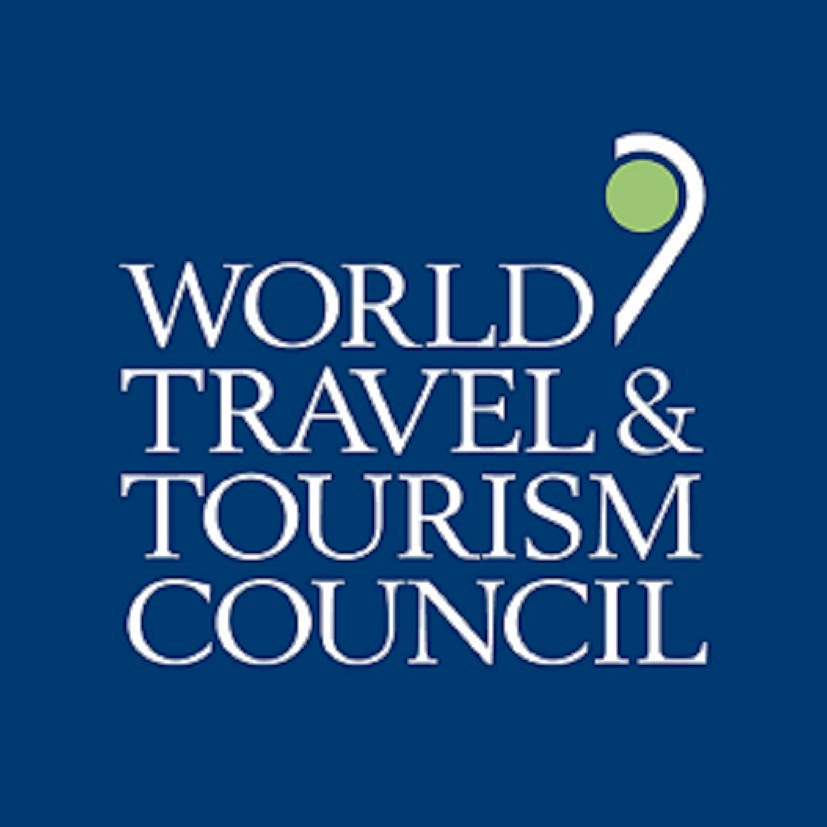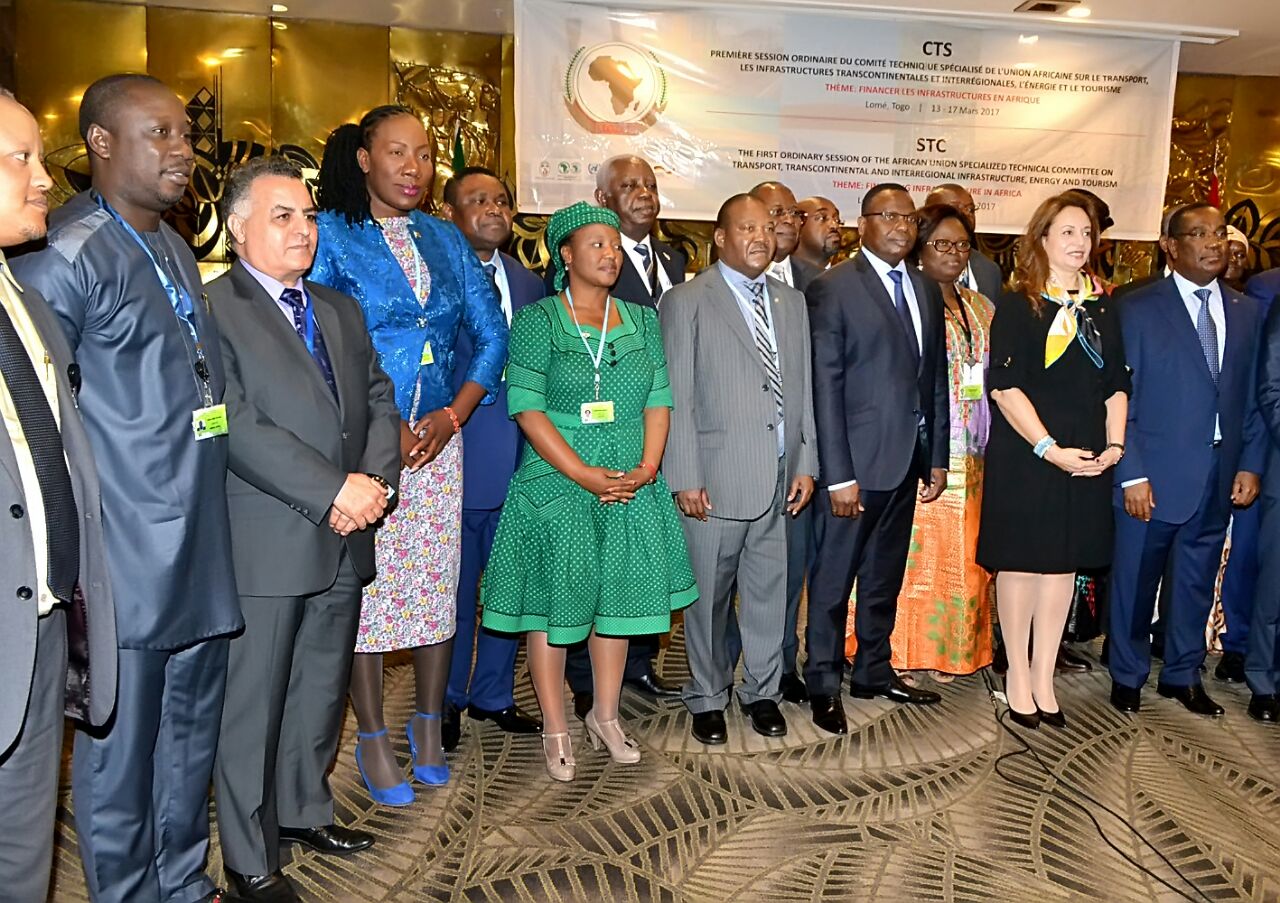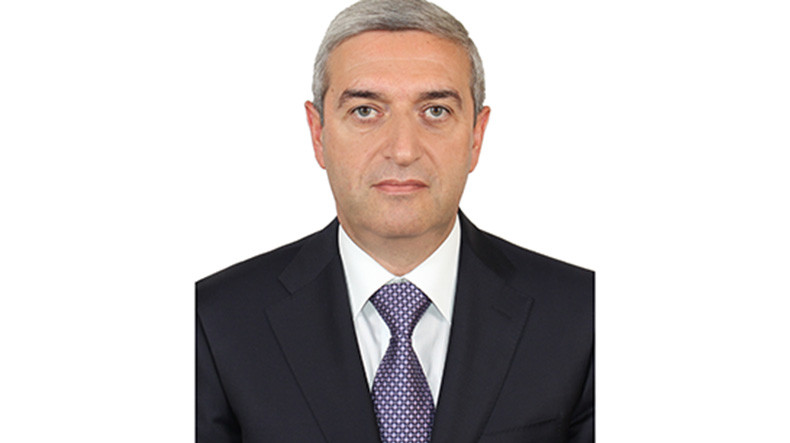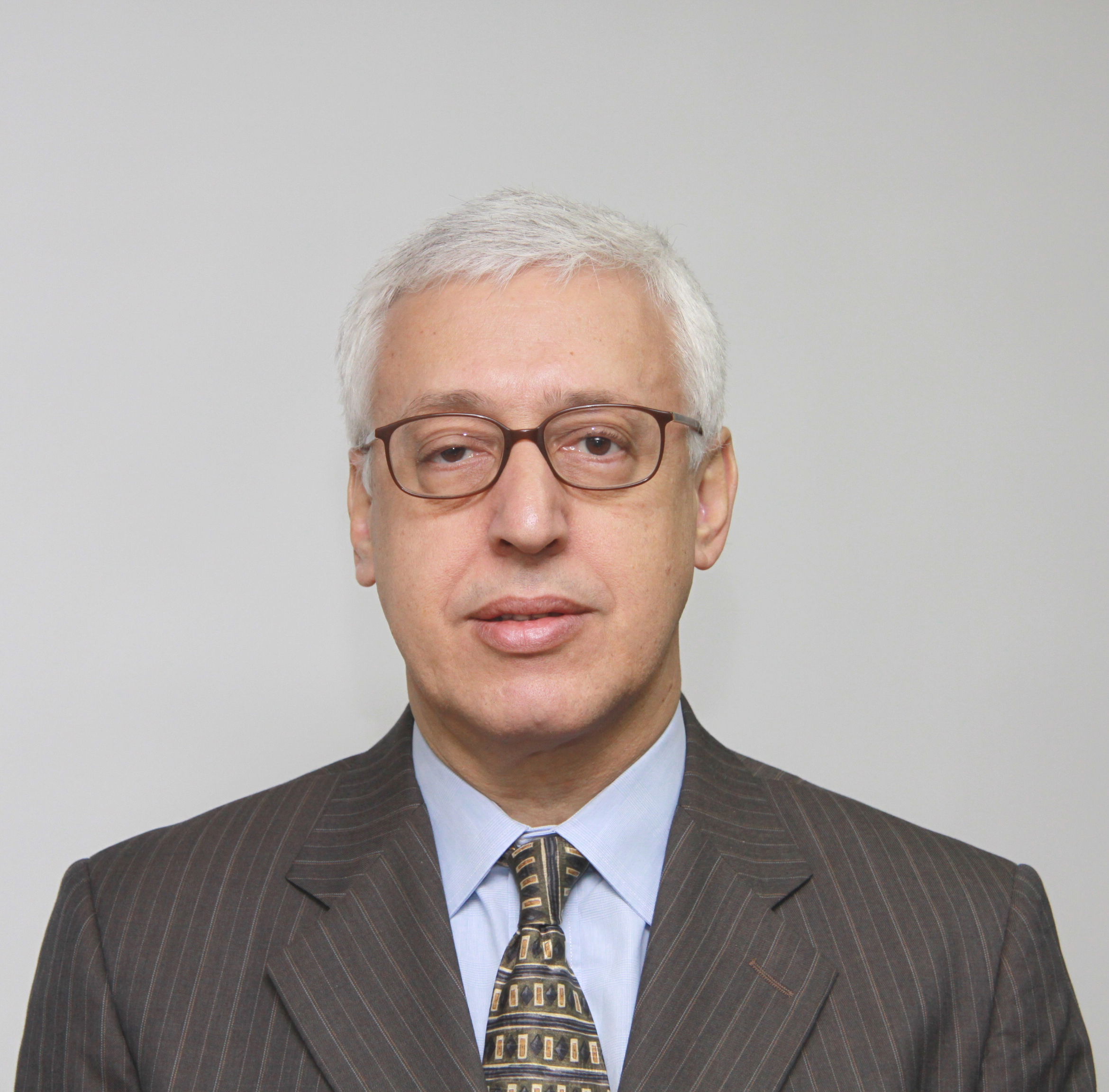

Tourism supports 1 in 10 jobs, outpacing global economy for 6th consecutive year, WTTC
Travel & Tourism generated 1 in 10 of the world’s jobs in 2016 as the sector grew by 3.3%, outpacing the global economy for the sixth year in a row, reads a new report by the World Travel & Tourism Council (WTTC).
WTTC’s Economic Impact Report 2017, which is conducted in conjunction with Oxford Economics, researches the economic impact of Travel & Tourism impact on global level, for 25 regions, and 185 countries.
According to the research, Travel & Tourism grew by 3.3% in 2016, generating US$7.6 trillion worldwide, which is 10.2% of global GDP when the direct, indirect and induced impacts are taken into account. The sector supported a total of 292 million jobs in 2016, which is 1 in 10 of all jobs in the world
Additionally, global visitor exports, which is money spent by foreign visitors, accounted for 6.6% of total world exports, and almost 30% of total world services exports.
David Scowsill, President & CEO, WTTC, said: “This is the sixth year in a row that Travel & Tourism has outpaced the global economy, showing the sector’s resilience, and the eagerness of people to continue to travel and discover new places, despite economic and political challenges across the world.
The continuous growth of our sector underlines the significance of business and leisure travel in driving economic development and job creation throughout the world.”
Southeast Asia (8.3%) was the region with the fastest growing Travel & Tourism sector in 2016, driven by the expanding Chinese outbound market and the countries own growing markets. Latin America (0.2%) was the slowest growing region. Some countries performed well above the world average, but the Brazilian economy dragged down the whole region.
The other regions registered the following growth: South Asia (7.9%), North East Asia (4.6%), Oceania (4.4%), the Caribbean (3.2%), North America (3.1%), the Middle East (2.7%), Sub-Saharan Africa (2.4%) and Europe (1.6%).
Travel & Tourism is expected to grow by 3.8% in 2017, generating US$ 7.9 trillion. This growth is slower than previously forecast, as a result of a downgrade to the global economy and a dampening of consumer spending.
Over the next decade the sector is forecast to grow at an average of 3.9% per year. By 2027 it will generate more than 11% of the world’s GDP and employ a total of 380 million people. One quarter of all jobs created in the next decade will be supported by Travel & Tourism.
Scowsill continued “The future prospects for Travel & Tourism are good, but the sector continues to face challenges. The impact of terrorism and the rise of populism pose a severe risk to the ability of people to travel efficiently and securely. The sector itself needs urgently to address the impact of growth on destinations and its own contribution to climate change if it is to be sustainable in the long term. The UN’s 2017 International Year of Sustainable Tourism for Development is a perfect opportunity to explore solutions together. We look forward to welcoming delegates at our upcoming Global Summit in Bangkok, Thailand, 26-27 April where these challenges will be addressed.”

UNWTO Secretary-General welcomes Japan’s support for tourism when meeting with Prime Minister Abe
The Secretary-General of the World Tourism Organization (UNWTO), Taleb Rifai, applauded Japan’s commitment to tourism development as one of the significant pillars of the socio-economic agenda during a recent official visit to Japan. Meeting Prime Minister Shinzo Abe, Mr Rifai welcomed Japan’s Action Program for Tourism focused on infrastructure development, visa facilitation and technology.
“Japan will continue to promote tourism and stress its great potential in people to people understanding as well as its important role in rural area development”, said Prime Minister Abe.
On the occasion, Mr. Rifai presented Prime Minister Abe with the Open Letter on Travel and Tourism, an initiative jointly led by UNWTO and the World Travel and Tourism Council (WTTC) to advocate tourism and its role to the development of nations.
Mr Rifai congratulated Prime Minister Abe on the impressive development of the tourism sector since he took office in 2013 and highlighted the potential that tourism has to bring development to all the areas of Japan. In 2016, Japan received 24 million international tourists, an increase of 22% as compared to 2015. Japan set as a target to increase the number of foreign tourists to 40 million by 2020, and to 60 million by 2030.
“Japan is showing a clear leadership in tourism development by placing tourism high in its socio-economic agenda. We thank Prime Minister Abe for its vision and leadership and look forward to continuing working with Japan to achieve its set target of 40 million international tourists by 2020”, said Mr Rifai.
David Scowsill, President & CEO, WTTC, said: “Japan is a country which has long recognized the power of our sector to drive economic growth. Travel & Tourism contributes 7.4% to the country’s GDP and generates over 4.5 million jobs, or 6.9% of total employment in the country. Japan ranks 4th in the world for Travel & Tourism GDP. We encourage the government to continue its great efforts to stimulate Japan’s Travel & Tourism sector, focusing on creating products to attract new markets and continuing to invest in infrastructure to absorb future demand in the country.”
Mr Rifai also met the Governor of Yamagata Prefecture, Mieko Yoshimura, to announce the forthcoming UNWTO Conference on Tourism and Snow-Related Activities, to be held in February 2018. The event is aimed at supporting the recovery of the Tohoku region (Northern) from the 2011 earthquake. It is also part of the efforts of UNWTO to support Japan in diversifying its tourism offer to less known tourism areas.
The visit was also an occasion to inaugurate the Tokyo Liaison Office of the UNWTO Regional Support Office for Asia and the Pacific(RSOAP)based in Nara in the presence of the 17 UNWTO Affiliate Members of Japan and 200 key tourism leaders and stakeholders. The office will provide supplementary support to the activities being carried out from the Nara-based office.
Besides his encounter with Prime Minister Abe, Mr Rifai held meetings with Mr. Yoshihiro Nikai, Secretary-General of Liberal Democratic Party (LDP), Mr. Keiichi Ishii, the Minister of Land, Infrastructure, Transport and Tourism (MLIT), Mr. Nobuo Kishi, State Minister for Foreign Affairs and Mr. Akihiko Tamura, Commissioner of Japan Tourism Agency (MLIT), all of whom expressed their support to the tourism sector and the work of UNWTO.
On the occasion, UNWTO Secretary-General also addressed the research commission for the establishment of a tourism oriented nation of the LDP and met with the representatives of the Japan National Tourism Organization (JNTO), the Japan Association of Travel Agents (JATA), the Japan Travel and Tourism Association (JTTA), JTB Corp., TOYO University, All Nippon Airways (ANA), Gurunavi Inc. and the Japan International Cooperation Agency (JICA).
JICA and UNWTO recently signed a Memorandum of Understanding aimed to contribute to the 2030 Agenda for Sustainable Development and the Sustainable Development Goals (SDGs) through tourism with a particular focus in assisting developing countries to reduce poverty through tourism as well as to improve public policies and business practices.

UNWTO Secretary General candidate landed key African Union Leadership Position
The Zimbabwe UNWTO Candidate for Secretary General of the United Nations World Tourism Organization (UNWTO), Eng. Walter Mzembi, landed an African Union (AU) Leadership position in Lome, Togo on 17 March 2017.
African Tourism, Energy and Infrastructure Ministers in Togo for the AU STC Meetings reaffirm their faith in Zimbabwe leadership in Tourism and elected the Hon. Eng. Walter Mzembi, Tourism & Hospitality Industry Government of Zimbabwe, as their Vice Chair of the Bureau of the AU-STC.
This is seen as another important step to accept the Zimbabwe minister to lead UNWTO starting 2018.
The Zimbabwe delegation to the First Ordinary Session of the African Union (AU) Specialised Technical Committee (STC) on Transport, Transcontinental and Interregional Infrastructure, Energy and Tourism, led by the Deputy Minister of Tourism and Hospitality Industry, Hon. Anastancia Ndhlovu (MP), has made Zimbabwe proud after the Southern African nation was unanimously elected to the position of the Vice Chair. The AU-STC met on 17 March 2017 in Lome, Togo and elected the Bureau on the basis of Rule Number 16 of the Rules of Procedure under the African Union Commission on Infrastructure and Energy.
The Bureau is made up of the Chairperson, 3 Vice Chairpersons, as well as a Rapporteur. Zimbabwe was elected as the 2nd Vice Chair, representing the Tourism sector and the Southern African region in the AU-STC for the next two years, until 2019. The other members of the Bureau which will meet once every year are Togo -Chairperson (representing the Transport sector and the West African region), Mauritania-1st Vice Chair (representing the Energy sector and the North African region), Ethiopia-3rd Vice Chair (representing the Energy sector and the East African region) and Congo -Rapporteur (representing the Transport sector and the Central African region). The Bureau is the Executive Organ of Ministers responsible for Infrastructure, Energy, Transport and Tourism sectors tasked with providing policy and oversight leadership role to the Work Programmes of the African Union Commission on Infrastructure and Energy, and the Specialised Technical Committee of Experts.
The election of Zimbabwe into the Bureau of the African Union Commission on Infrastructure and Energy has come hardly a year following yet another successful tenure of Zimbabwe’s Chairmanship of the AU by His Excellency the President, Cde R.G. Mugabe, from January 2015 to January 2016. Following this election, the elated Deputy Minister Hon. Anastancia Ndhlovu said, “This election is the approval and endorsement of the great work done by the greatest son of Africa, His Excellency, President R.G. Mugabe, when he steered the AU Summit to a landmark adoption of the Agenda 2063, anchored on the 2030 Sustainable Development Goals. This is very exciting indeed and it only confirms the legacy of the unparalled leadership of His Excellency, the President”.
The election of Zimbabwe to lead the Southern Region of Africa in the Bureau of the African Union Commission on Infrastructure and Energy representing the Tourism sector, is happening when the Minister of Tourism and Hospitality Industry Hon. Dr. Walter Mzembi has successfully submitted his application to become the next Secretary General of the United Nations World Tourism Organisation (UNWTO), for the next 4 years, from 2018 to 2021, to the Headquarters of the Madrid-based global tourism organization. Hon. Dr Walter Mzembi is currently continuing with his world-wide outreach effort to garner international support for the countrys bid represented by him to secure the top job at the UNWTO. Elections for the next Secretary General will take place at the UNWTO Headquarters in Madrid, Spain from 11 to 12 May 2017, during the course of the 105th session of the Organisations 33 member Executive Council meeting.
Asked what the election into AU-STC Bureau means to Zimbabwe’s bid for the top UNWTO post, Deputy Minister Anastancia Ndhlovu had this to say, “I can confirm that the election of Zimbabwe further re-affirms the visionary leadership qualities of Hon. Minister Mzembi, as the current Chairperson of the UNWTO Regional Commission for Africa (CAF) and the African Union-endorsed candidate for the UNWTO post, who has been very articulate on Zimbabwe’s and African tourism issues at a global scale. Therefore, this election will definitely be a boost to Hon. Minister Mzembi’s election bid, since the policy issues we pushed through to the apex of the African Union Commission on Infrastructure and Energy today reflect his vision for Africa’s tourism and the global tourism industry”.
The unanimous election of Zimbabwe to lead the AU-STC Bureau in the area of Tourism came against the background of a protracted discussion in the STC meetings that saw Zimbabwe taking a stand for the mainstreaming and the institutionalization of tourism in the 2063 Agenda of the AU and its structures, respectively. The sterling presentation and articulation of these policy issues by Zimbabwe paid dividend when the African Union Commission on Infrastructure and Energy agreed to establish a Directorate or Unit on Tourism in the structures of the Organisation by December 2018, in order to provide policy support and coordination of the proposed African Tourism Organisation. Currently, there is no physical presence of tourism in all the structures of the AUC, despite the celebration of the sector as the third economic activity after fuels and chemicals, on the global scale.
The UNWTO 2016 Report indicates that global tourism grew by 4.6% in the year 2015 while Africa declined by 3% in the same year, the trend Zimbabwe is fighting to reverse for the benefit of all African countries and other developing tourist destinations of the world.

UNWTO Secretary General Race: Final list of candidates
The Secretariat of the World Tourism Organization referring to decision CE/DEC/15(CIV) of the Executive Council at its 104th session (Luxor, Egypt, 30 October – 1 November 2016), on the procedure for the election of the Secretary-General, informs in regards to the election for the post of Secretary-General for the period 2018-2021, that as of 11 March 2017, 24:00 hours, Madrid time, the deadline for the submission of candidatures in accordance with the aforementioned decision, the following candidatures were complete and duly accompanied by the required documents (letter of the candidate, curriculum vitae, statement of policy and management intent and a certificate of good health signed by a recognized medical facility), along with the letter of support from the Government of the country endorsing a candidate (listed in alphabetical order of the Member State):
Armenia:
Mr. Vahan Martirosyan submitted with the support of the Government of Armenia and received on 10 March 2017;
Brazil:
Mr. Márcio Favilla submitted with the support of the Government of Brazil and received on 6 March 2017;
Colombia:
Mr. Jaime Alberto Cabal Sanclemente submitted with the support of the Government of Colombia and received on 6 March 2017;
Georgia:
Mr. Zurab Pololikashvili submitted with the support of the Government of Georgia and received on 2 December 2016;
Republic of Korea:
Mrs. Young-shim Dho submitted with the support of the Government of the Republic of Korea and received on 24 February 2017;
Seychelles:
Mr. Alain St. Ange submitted with the support of the Government of Seychelles and received on 18 January 2017;
Zimbabwe:
Mr. Walter Mzembi submitted with the support of the Government of Zimbabwe and received on 4 March 2017;
The Secretariat received seven other applications which were not accompanied by the required documents. Consequently, the applications will not be submitted to the 105th session of the Executive Council.

Armenia’s minister of tourism Vahan Martirosyan enters UNWTO Secretary general race
The Hon. Vahan Martirosyan, minister of tourism for Armenia is the latest out of 7 candidates competing for the post of the UNWTO Secretary General.
Not many relevant news items in regards to the ministers connection and experience in global tourism was found, but here is some key data on Vahan Martirosyan:
Date and Place of Birth
October 28, 1962, Yerevan
Education
1979-1984, K. Marx Polytechnic Institute in Yerevan, qualification of engineer-radio technician
Work Experience
1984 – 2000, Yerevan Electrical Equipment Plant, engineer-constructor,
constructor bureau chief, deputy chief engineer
2000 – 2006, Cornet-AM CJSC Director General
2006, ArmenTel CJSC Commercial Director
2006 – 2010, Chairman of the Board of Directors of Cornet-AM CJSC
2008 – 2012, GNC- Alpha CJSC, Chairman of the Board of Directors
2012-2016, GNC- Alpha CJSC, Chairman of the Board of Directors
As of September 20, 2016, Minister of Transport and Communications of the Republic of Armenia
As of October 6, 2016, Minister of Transport, Communication and Information Technologies
Other Information
Liable to military service; reserve officer; Candidate of Technical Sciences.
Political Affiliation
Republican Party of Armenia
Marital Status
Married, with one child

World Tourism Organization: The importance of ethics and social responsibility
The project was presented for the first time in January 2016 at the FITUR Tourism Fair under the title “Spanish companies driving responsible tourism.” During the event, the participating companies publicly signed the Private Sector Commitment to the UWNTO Global Code of Ethics for Tourism and took part in a debate about the challenges, strategies and tools to achieve a responsible and sustainable tourism sector by engaging in the 17 Sustainable Development Goals.
With globalization, growing mobility and competitiveness, the safeguarding of human rights and respect for the environment and society in the way of doing business have suffered in many industrial sectors, including tourism. One way of addressing the negative impacts of business has been through voluntary commitment to corporate social responsibility (CSR).
CSR involves business practices aimed at increasing revenues while benefiting the local communities in which companies operate, contributing to a lasting, sustainable and more competitive business model.
To leverage transparent and responsible business practices, the UNWTO Secretariat initiated in 2011 a campaign geared towards the private sector by inviting tourism enterprises and their trade associations to adhere to the Private Sector Commitment to the UNWTO Global Code of Ethics for Tourism.

Brazil’s candidate for UNWTO: Marcio Favilla De Paula lays out his plan for Secretary General
Marcio Favilla L. De Paula hopes to become the next Secretary General of the United Nations World Tourism Organization (UNWTO).
Marcio is currently serving as Executive Director for Operational Programs and Institutional Relations at the UN World Tourism Organization (UNWTO) in Madrid where he has been serving in that capacity since 2014. Appointed by Brazil, Mr. Favilla de Paula was the Vice Minister at the Secretariat of Institutional Relations of the Presidency of Brazil from 2007 to 2009 before starting his assignment at UNWTO Madrid.
Between 2003 and 2007, he was Brasi’s first Vice Minister of Tourism, when played a key role in structuring and managing the first exclusive Ministry of Tourism in the country as well as in the formulation of the First National Tourism Plan and implementation of its five key objectives related to international arrivals and receipts, domestic tourism development, product diversification and job creation.
eTN publisher, Juergen Steinmetz, sat down with him for a discussion on the sidelines of ITB Berlin last week. Both Mr. Steinmetz and Mr. De Paula are serving on the Executive Committee of the World Tourism Network on Child Protection and met at a committee meeting held there.
With many other candidates competing for the job of Secretary General, it was refreshing to hear from Marcia Favilla De Paula:
“I will not comment on other candidates. I think every single candidate is highly qualified. After the election, we all have to work together. Let the best women or man win.”
“I am working hard on my campaign, with the help of my wife and my own financial resources.
Mr. De Paula summarized his goal to lead UNWTO during the next term based on the following policy priorities.
Sustain the policy focus on competitiveness and sustainability, in all its dimensions, in line with UNWTO’s Global Code of Ethics for Tourism and the 2030 Global Development Agenda.
Maintain UNWTO’s effective integration into the UN System and collaboration with UN sister organizations as well as with other governmental and private international entities in order to advance tourism relevance in the global development agenda.
Strengthen UNWTO’s technical output, knowledge development, and analysis capabilities in order to provide members with the most relevant and timely data and information, authoritative advice, and policy guidance, to serve and support memberships technically and politically.
Work closely with members, non-member states, relevant international organizations, and partners to jointly address the current global (and common) challenges of safety and security, while seamless friendly travel is preserved and enhanced. He said, “I know this is possible.”
Promote partnerships with the private sector, international organizations, development partners, and civil society as well as bi-lateral and regional cooperation initiatives in order to enhance investment opportunities, including those brought about by the ICT revolution, especially for women and young entrepreneurial talents. It is hard to think of another sector or another activity where cooperation fits so well, Mr. De Paula said.
Foster human resources development so that the growing and diverse needs of destinations, businesses, and tourists are met by increasingly-qualified people with career perspectives in the travel and tourism sector.
Consolidate UNWTO’s full and affiliate membership and devote special attention to bring in some of the most important source and destination countries that are currently not involved.
Step up efforts in bringing additional extra budgetary resources and funding to strengthen UNWTO’s capabilities in delivering services and providing technical cooperation to members in order to address their priorities and needs.
Pursue and enhance, with the engagement of staff and membership, UNWTO’s track record of efficiency, professionalism, transparency, and good governance and also adapt UNWTO to the demands of a volatile environment.
With 37 years of professional, managerial, and political experience, starting from local grassroots field work to the state, national, and international levels, Mr. Favilla brings his own unique combination of personal skills, technical knowledge, professional achievements, strong commitment and solid experience, including 7 years as Executive Director of UNWTO, to the candidacy slate for Secretary-General of the World Tourism Organization.
Mr. Favilla started his professional career in 1980 in Belo Horizonte as a credit officer of the Development Bank of Minas Gerais. He then held several managerial positions at the bank and at the State Secretariat for Finance of Minas Gerais, including that of Head of the teh State Treasury, before joining the Brazilian Federal Government in 1999.
Mr. Favilla has a Master of Arts in Development Studies from the Institute of Social Studies, The Hague, Netherlands. He speaks Portuguese, English, Spanish and French. Mr. Favilla is married, has two children. He was born in 1958.

UNWTO: Governments need to lead the protection of children in tourism
The 32nd meeting of the UNWTO World Tourism Network on Child Protection focused on the role of governments in advancing the fight against the exploitation of children in tourism (9 March 2017).
“Child protection is the responsibility of all – communities, private sector, academia, but governments have a leading role to play” said Carol Bellamy, Chair of the Network, opening the meeting.
“There is a bright and black side to tourism; we need to recognize the black side exists and address it with no shame. We need zero tolerance to any form of child exploitation. We cannot allow the tourism infrastructure to be used for this and shouldn’t have any issues in exposing such situations”, said UNWTO Secretary-General, Taleb Rifai.
The meeting, which was attended by the Ministers of Tourism of Ghana and Sudan, was an opportunity to share best practices from India (TMB), Kenya, Maldives, Myanmar, the Association of British Travel Agents (ABTA), the World Childhood Foundation, and Uruguay representing the Regional Task Force for the Protection of Children in Travel and Tourism of the Americas (GARA), which Uruguay presides since last year.
Cross-government coordination and commitment as well as cross-sectoral cooperation were pointed out as key factors to advance child protection in tourism.
The World Tourism Network on Child Protection (formerly the Task Force for the Protection of Children in Tourism) is an open-ended network featuring the multi-stakeholder participation of a range of tourism stakeholders, from governments, international organisations and non-governmental organisations (NGOs) to tourism industry groups and media associations. Originally formed in 1997, since 2007 its mandate has been to prevent all forms of youth exploitation in the tourism sector (i.e. sexual exploitation, child labour and child trafficking).
The Network’s meetings, held annually at the worlds’ foremost Travel and Tourism Fairs, serve as a platform for key actors to exchange experiences and best practices, present awareness-raising materials and capacity building tools, and promote the adoption of professional codes of conduct or other responsible practices in line with the UNWTO Global Code of Ethics for Tourism.
The activities of the World Tourism Network on Child Protection are co-ordinated by the UNWTO Secretariat and monitored by an Executive Committee established in November 2000.

ITB, UNWTO, Politcis and Air Seychelles Duesseldorf flight
At ITB in Berlin last night the Republic of the Seychelles had many reasons to celebrate.
The national carrier Air Seychelles announced a twice a week non-stop flight from Seychelles to Duesseldorf, Germany.
This is an achievement for the tourism industry not only to promote to tourists in Germany wanting to explore the beaches of the Indian Ocean country, but also for citizens of the Seychelles ready to explore Duesseldorf as a shopping destination.
The event last night also had a different highly political twist. The active fight for the post of the next secretary General of the United Nations World Tourism Organization (UNWTO) was on the center stage. Candidate and former minister of tourism for the Seychelles, Alain St. Ange managed to bring the current secretary general Taleb Rifai to the stand, along with the ministers of tourism for the Seychelles and Mauritius and VP’s for Air Seychelles and the airline’s main investor Etihad Airways.
Carlos Vogeler, running mate for the Korean candidate for the UNWTO Post Dho Young-shim was spotted in the high level audience.
See for yourself:

What UNWTO Secretary General Taleb Rifai thinks about candidate Dho Young-shim
Today the Korean Embassy in Berlin, Germany invited top VIP’s including ministers and members of the diplomatic community into the legendary Kempinski Adlon Hotel next to Brandenburg gate in Berlin for a breakfast meeting.
Ambassador Dho Young-shim from the Republic of Korea together with her running made Carlos Vogeler from Spain made their case why they should be elected to become the new Secretary General of the United Nations World Tourism Organization UNWTO.
Introduced by the Korean Ambassador to Berlin Ambassador Dho introduced a clever and convicting made video to relate her case to delegates and dignitaries attending the breakfast
Among the VIP’s attending the breakfast was the current UNWTO Secretary General Taleb Rifai.
He made his case and told the audience what he thinks about candidate Dho Young shim
Put in video Taleb case.
Currently 7 candidates are competing for the highest post in travel and tourism.
